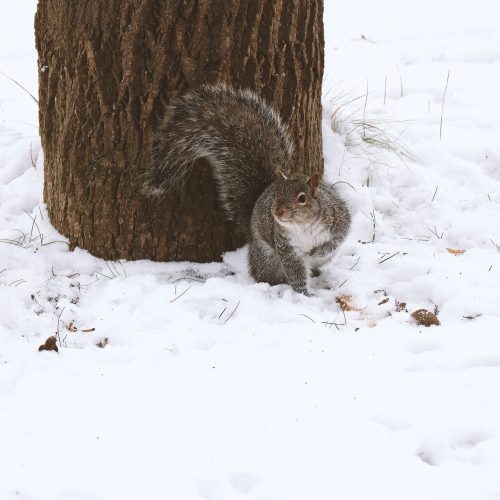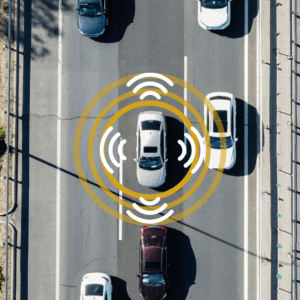We are in the coldest month of the year, and all those small critters outside are shivering and looking for a warm place to set up housekeeping and/or tasty (to them!) snacks. Did you know that your car can be very inviting to mice, rats, squirrels and other small rodents? We even found a porcupine in the engine of a car that came into our shop!
Besides the obvious diseases and health problems that rodents carry, small rodents can also create havoc in your vehicle. They like to nibble on wire housings and other cushion foam insulation in your car or truck. Often, they burrow into very small, out-of-the way places where we would not normally look for shorts in wires or damage and therefore the cause of the problem can be difficult to locate.
We recently had a Nissan Pathfinder come in because the car wouldn’t start. The owner opened the hood and a squirrel jumped out! The squirrel had gnawed on several ground wires that required replacement.
Signs that you might have an uninvited passenger in your vehicle include:
- Droppings in the engine compartment or in the vehicle
- Nibbled wires, plastic or hoses
- Nesting material (small twigs, cotton, paper) in your air filter or elsewhere
- Unpleasant smell in your car, often worse when you turn on your fan
- Inconsistent shorts in your vehicles electrical system (lights won’t turn on or will blink erratically, blower motor noises, dashboard lights turn on/off, or even a horn blowing on its own)
Another customer woke up to his car horn going off. Mice had set up their home nest in an area where the electronic module wires crossed each other and chewed on the wires. Both the bright colors and/or the “tasty” insulation around the wires attract rodents to these areas in your engine. In this case, replacement of the Electronic Brake Module cost nearly $800 in parts alone!
Prevention is much easier (and less expensive) than dealing with the consequences if you have an infestation in your home or your car. First, clean your car regularly and do not let food bags or crackers that fall on the floor stay in the vehicle. This is a clear invitation for rodents to come in for a quick snack! Even spilled, sugar-laden soda smells very appealing to a small mouse! Blocks points of entry, both into the car and into your garage.
Cars that are not driven frequently are most at risk, whether they are parked inside or out. Seal up your car if it is parked outside, and try not to park near shrubs or bushes where rodents find shelter. However, even cars that are driven daily are at risk. If you park in a garage, be sure pet food, bird seed, or even garden seeds are in sealed containers so that critters are not lured into the garage, where they can more easily make it into your home or vehicle. Also, seal gaps in doors and around windows. Antifreeze has a sweet smell that can also be very inviting to rodents (and dangerous for dogs and cats!), so be sure the container is covered tightly and any spilled antifreeze is cleaned up.
If you already have a rodent problem, be sure and get rid of them with traps or poison and clean the area well. Rodents carry many diseases that can be transferred to humans and pets. You can often repel rodents by putting odd smells around your vehicle. Here are some options:
- Peppermint Oil: soaked in cotton balls and placed in and around your engine compartment and garage. Moth balls can also be used, but the smell is a deterrent to me!
- Dryer Softener Sheets: tie them around the engine compartment and inside the vehicle
- Irish Spring Soap: Use a wire to attached cubes of soap around the engine, or rub the soap around the tires and engine compartment
Remember, any of these smells may diminish quickly and will need to be reapplied weekly to be effective.
Be proactive and keep rodents out of your vehicles – prevention is worth a pound of cure and will save you money and time in the long run!



